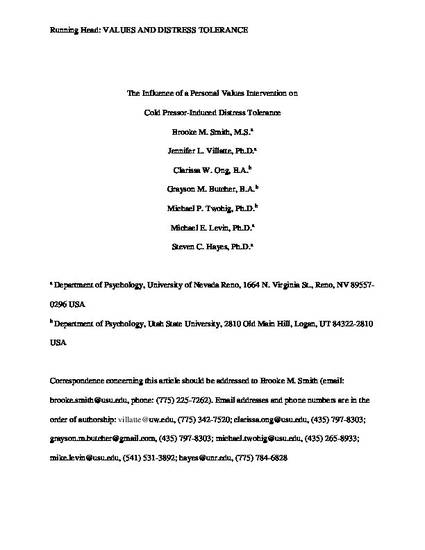
Research has demonstrated that values and acceptance interventions can increase distress tolerance, but the individual contribution of each remains unclear. The current study examined the isolated effect of a values intervention on immersion time in a cold pressor. Participants randomized to Values (n = 18) and Control (n = 14) conditions completed two cold pressor tasks, separated by a 30-minute values or control intervention. Immersion time increased 51.06 seconds for participants in the Values condition and decreased by 10.79 seconds for those in the Control condition. Increases in self-reported pain and distress predicted decreases in immersion time for Control, but not Values, participants. The best-fitting model accounted for 39% of the variance in immersion time change. Results suggest a brief isolated values exercise can be used to improve distress tolerance despite increased perceptions of pain and distress, such that values alone may be sufficient to facilitate openness to difficult experiences.
Available at: http://works.bepress.com/michael-twohig/324/
